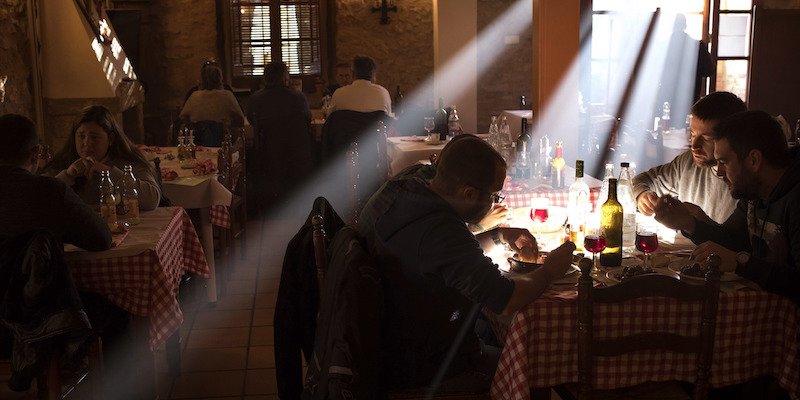Il servizio di Piazza Pulita sull’ILVA
È andato in onda ieri sera e ricostruisce le fasi principali della vicenda negli ultimi mesi: i problemi ambientali, la sicurezza e il futuro della produzione

A view of the ILVA plant in the southern Italian city of Taranto on August 2, 2012. Thousands of Italians took to the streets in the southern city of Taranto Thursday in rival protests over the closure of one of Europe’s largest steel plants due to pollution concerns. The impoverished industrial port has become the scene of a fierce stand-off between those who want the deadly ILVA plant closed and the thousands of families that depend on it at a time of worsening economic crisis in Italy. Eight ILVA executives have been put under house arrest following expert findings that chemicals spilling from the plant are behind high cancer rates. AFP PHOTO / MARIO LAPORTA (Photo credit should read MARIO LAPORTA/AFP/GettyImages)
Ieri, durante il programma Piazza Pulita su La7, è andato in onda un servizio di Alessandro Sortino che ricostruisce le fasi principali della vicenda dell’ILVA di Taranto negli ultimi mesi. Lo stabilimento ILVA di Taranto è il grande stabilimento siderurgico al centro di un’inchiesta per disastro ambientale e altri reati, che nei giorni scorsi ha portato a un provvedimento di sequestro da parte della magistratura che ne ha fermato la produzione, costringendo gli oltre 5000 lavoratori a restare fuori dalla fabbrica. Ieri il Consiglio dei ministri ha approvato un decreto legge che permette alla produzione di ripartire nell’ambito di un percorso concordato di risanamento attraverso investimenti da parte dell’azienda, con controlli periodici e una supervisione affidata a un organismo indipendente.
Foto: MARIO LAPORTA/AFP/GettyImages





